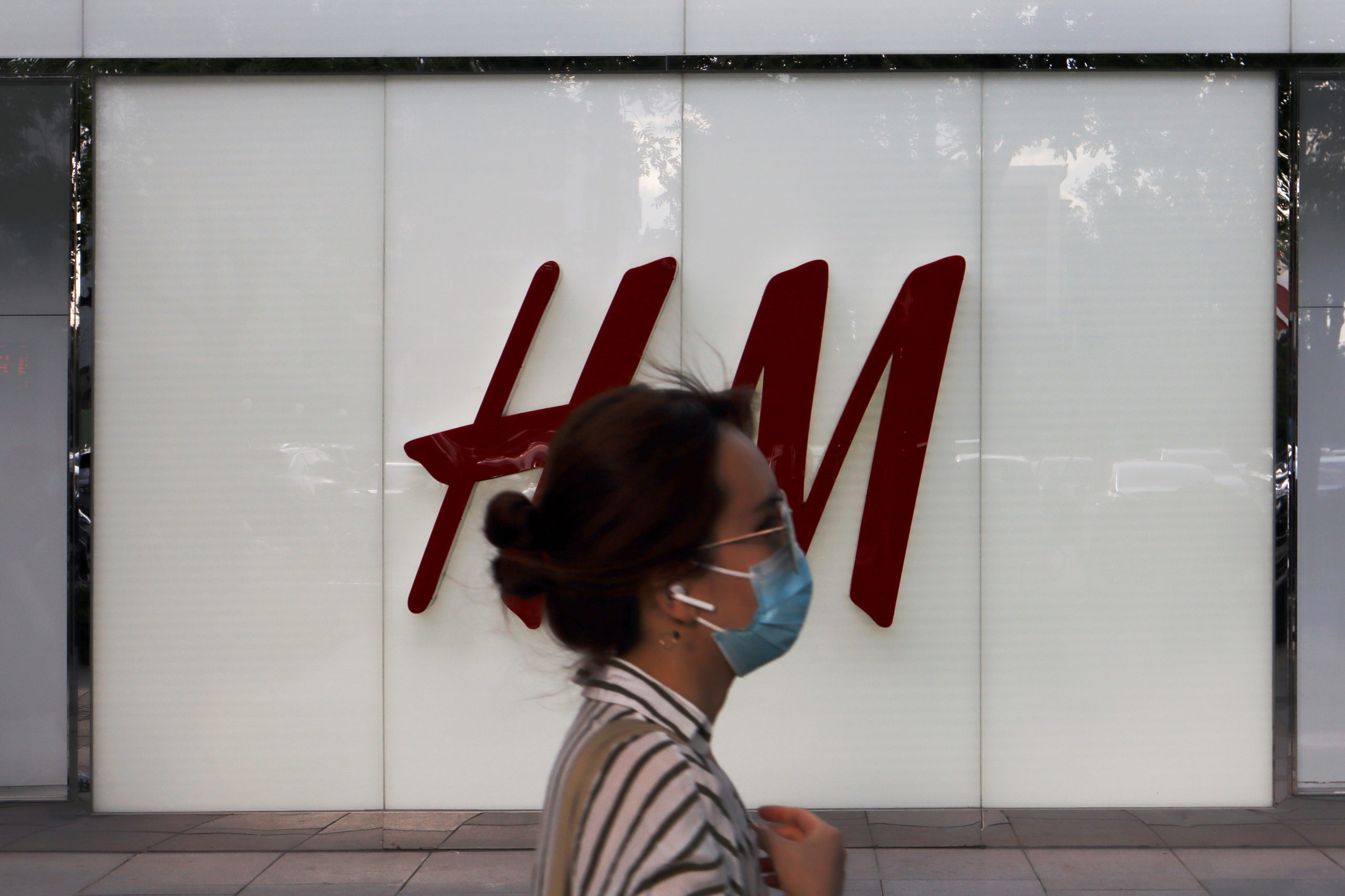Everyone is in a rush to escape the dumpster fire that is the Xinjiang cotton crisis
Western fashion brands face pressure to declare their supply chains free from cotton that may be tainted by forced Uyghur labor, but in China, those declarations are getting them boycotted.

What a day. In just 24 hours, a host of foreign brands — ranging from Swedish fast-fashion retailer H&M to German sportswear manufacturer Adidas to Japanese casual-wear chain UNIQLO — have been forced to confront their stances on Xinjiang cotton as calls for boycotts sprung up on Chinese social media, where reports of forced labor in Xinjiang have been interpreted as blatant lies made up by anti-China forces.
The social media storm began when the Communist Youth League of China (CYLC) lambasted (in Chinese) H&M for last year issuing a letter saying it was “deeply concerned” by reports on “forced labor and discrimination of ethnoreligious minorities in Xinjiang.” Chinese social media users soon discovered that a large number of foreign clothing brands were members of the Better Cotton Initiative (BCI), an international cotton sustainability organization, which said in October that it was suspending its approval of cotton sourced from Xinjiang, citing human rights concerns.
And so, the fury was unleashed.
As is typical for nationalism-tinged protests in China, a variety of celebrities and organizations have raced to sever ties with brands in trouble, many apparently in direct response to social media posts demanding that they support the trending hashtag “I support Xinjiang cotton” (我支持新疆棉花), which has garnered more than 4 billion views on Weibo as of today.
Here are the latest developments on the fallout of the Xinjiang cotton debacle:
- A-list stars Dilraba Dilmurat (迪丽热巴 Dílì Rèbā) — a Uyghur actress with a huge fan base amongst Han Chinese — and Liú Yìfēi 刘亦菲 — who starred in Disney’s live-action remake of Mulan, a movie that attracted its own share of criticism last year for filming in Xinjiang — announced that they had ended their business relationships with Adidas. Other brands, including Nike, Calvin Klein, and Converse, have also lost their Chinese brand ambassadors.
- China’s professional soccer and basketball teams are under mounting pressure to cut ties with Nike, which has been a major sponsor for years.
- A partnership between Tencent Games, the video-game division of Chinese internet giant Tencent, and U.K.-based luxury fashion house Burberry appears to be over. In a statement released this morning, Tencent Games said that it had removed two Burberry-designed “skins” — outfits worn by in-game characters — from its multiplayer online battle game Honor of Kings on the grounds that the British clothing brand stopped sourcing cotton in Xinjiang.
- Chengdu Joy City, one of the biggest “shopping parks” in southwestern China, has taken down H&M signs on billboards outside of its buildings. It’s unclear whether or not the actual H&M store remains open.
- Youth With You 3, a Chinese boy group survival reality show that’s currently airing on video-streaming platform iQIYI, announced that its next episode had been pushed back for an uncertain time. Many people believe the delay was caused by the fact that Adidas was a main sponsor of the show, where its contestants constantly wore T-shirts with Adidas logo embroidery.
Some brands wanted everyone to know that they were big supporters of Xinjiang cotton and definitely not friends of the Better Cotton Initiative:
- The China-based subsidiary of Italian sportswear brand FILA said (in Chinese) on Thursday the company had always used cotton produced in Xinjiang. FILA was acquired in 2009 by Chinese company ANTA Sports, which said yesterday that it had started the process of quitting BCI.
- MUJI, the Japanese home-goods retailer, told (in Chinese) state-run tabloid Global Times today that it had never boycotted Xinjiang cotton. Many clothing items on the brand’s onlines stores on Chinese ecommerce sites are now labeled as “products of Xinjiang cotton.”
- In an interview with Jiemian News, a spokesperson for BCI’s Chinese office said (in Chinese) that the organization’s China team never discovered human rights abuse in Xinjiang, and that brands’ decisions to boycott Xinjiang cotton had nothing to do with it. However, the person added that BCI had suspended its program in China due to “pressure from various sides.”
- BCI has removed the page on its website about the suspension of certification for Xinjiang cotton (the notice is available on Google’s cache).
Predictably, there’s been a wild rush online by artists and companies to capitalize on the social media storm.
- Chinese rapper Nǎi Wàn 乃万 has removed (in Chinese) her song “PUMA” from all music-streaming platforms. Although the track is by no means a direct endorsement of the brand, one can see how it might land the artist in trouble because the chorus (in Chinese) is “I got Puma, Puma,” and Puma is a member of BCI.
- On Wednesday evening, rapper and producer Liú Fūyáng 刘夫阳, who has about 630,00 followers on Weibo, dropped a patriotic track (in Chinese) targeting the U.S. and foreign brands that have expressed concerns about human rights abuse in Xinjiang. Named “Respect,” the song condemns the hypocrisy of American commitments to human rights, its mishandling of the COVID-19 pandemic, and its oppression of China. Some notable lines from “Respect” include:
Giving us unfair treatment in the name of protecting human rights
They’ve lost the respect I once had for them
You want to be the world’s leader, but you pretend you are just a peacekeeper
Look at how you dealt with the pandemic, Xinjiang is much safer than your country






